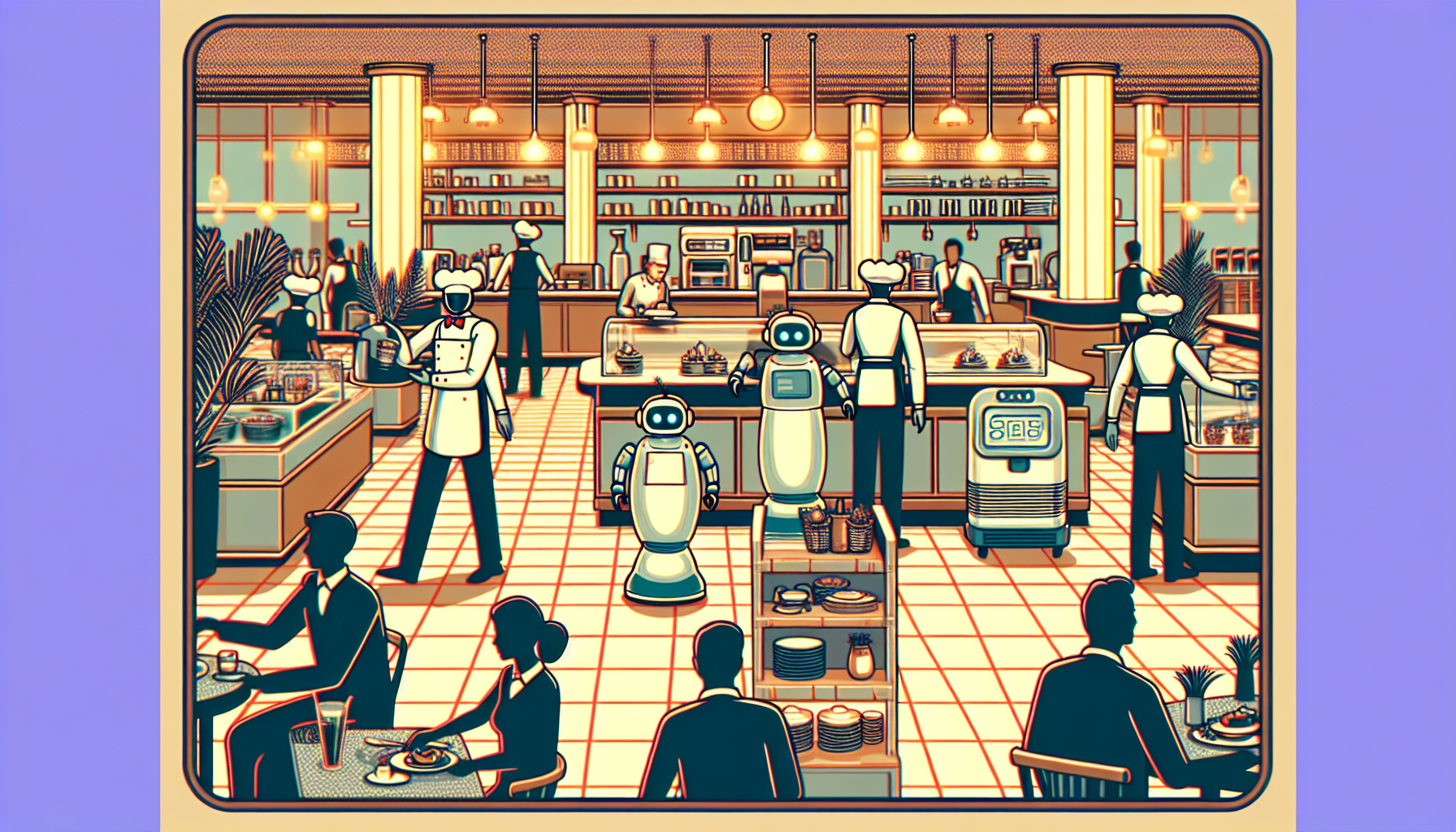The hospitality industry is on the brink of a significant transformation, ushered in by the integration of AI-powered robotics. With labor shortages challenging businesses and customer expectations reaching new heights, adopting service robots is rapidly becoming essential for maintaining efficiency and improving guest experiences. At the heart of this transformation lies the concept of Robotics-as-a-Service (RaaS), offering hotels and restaurants robotic solutions without the substantial initial investment of ownership.
Challenges and Opportunities
Persistent labor shortages are a significant issue for the hospitality sector, especially in hotels and restaurants. According to the American Hotel & Lodging Association, 76% of surveyed hotels face staffing shortages, despite efforts to attract and retain employees through higher wages and flexible work schedules. However, these strategies alone aren’t enough, making AI robotics an increasingly appealing solution.
AI-powered robots are quickly becoming integral to hotel operations, boosting efficiency, cutting costs, and enhancing the guest experience. Capable of handling tasks like service delivery, cleaning, and disinfection, these robots free up human employees to focus on providing personalized service. The market for hospitality robots is anticipated to soar, projecting a value of $65.4 billion by 2032.
Robotics-as-a-Service (RaaS)
RaaS is emerging as a viable, cost-effective option for hospitality businesses. By offering robots on a subscription basis, smaller operators can experience advanced automation without the financial strain of owning and maintaining robots. Companies such as Nightfood Holdings are tapping into RaaS to blend technological innovation with their expertise, benefiting from their years of experience in running numerous hotel properties.
Key Players and Technologies
NVIDIA stands out in developing AI technologies that enhance humanoid robot capabilities, though its focus in hospitality-specific robotics isn’t as pronounced as in broader AI and computing ventures. Meanwhile, companies like Bear Robotics are leading the charge by collaborating with industry leaders to deploy AI-powered robots in hotels and restaurants, thus redefining operational efficiency and service delivery.
Future Projections
The future of AI-powered robotics in hospitality looks bright. The coming years are expected to see a significant rise in AI adoption within the industry, with AI technology in hospitality projected to grow swiftly over the next decade. As hotels and restaurants embrace AI-driven robots, they will be well-positioned not only to address labor shortages but also to elevate the guest experience through more personalized and efficient services.
Balancing Technology and Human Interaction
AI-powered robots are indeed reshaping the hospitality industry, but they’re not a replacement for human staff. Rather, they intend to complement human services by automating repetitive tasks, freeing staff to concentrate on creating a personalized and inviting experience for guests. This thoughtful integration of robots helps harness the advantages of technology without losing the invaluable human touch that defines the hospitality sector.
In conclusion, AI-powered robotics is revolutionizing hospitality by tackling critical challenges like labor shortages while meeting growing consumer expectations. As the sector evolves, the strategic use of AI-driven robots will be crucial in maintaining efficiency, lowering costs, and boosting guest experiences, ultimately setting new benchmarks for service excellence in hotels and restaurants.

Leave a Reply